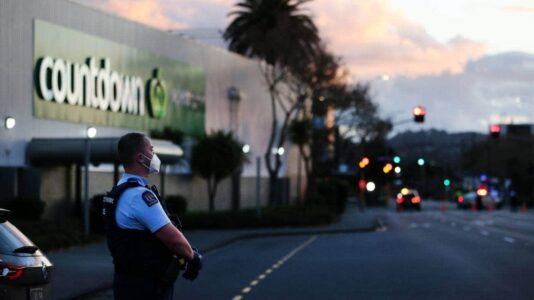
Terrorist wanted attack to encourage Muslims to radicalise
Terrorism experts believe the man responsible for stabbing six victims in Auckland may have wanted to incite reprisals against Muslims and to encourage them to radicalise into becoming Isis supporters, or acted out of misguided revenge against Westerners.
University of Waikato law professor Alexander Gillespie said while no-one knew how many Isis-inspired extremists live in New Zealand, he believed it would be less than the 40 individuals that then Prime Minister John Key confirmed were being monitored in 2014.
“You can expect that number has gone down since then as the Islamic State has lost power, prestige and territory, and their law will have declined.”
Gillespie said the Sri Lankan national who carried out the attack before being shot dead on Friday could have wanted to inspire followers of Isis.
Starting as an al Qaeda splinter group, Isis aims to create an Islamic state across Iraq, Syria and beyond.
Also known as Islamic State (IS) or Islamic State In Iraq and the Levant (ISIL), the group aims to establish a society based on Sharia law that has its origins in eighth-century Islam teachings.
The regime has also gained a reputation for brutality, beheadings, regulated slavery and the institutionalised rape of girls.
Punishments have been carried out in public to intimidate people who were often forced to watch.
The United Nations has formally designated Isis as a terrorist organisation, but that hasn’t stopped it gaining adherents from around the western world, including in New Zealand and Australia.
Gillespie said the Auckland terrorist may have been aiming to galvanise followers when he went into his local Countdown, picked up a knife and stabbed his victims.
He believed the terrorist planned his attack and chose a place where he could exact as much damage as possible before he was “taken out”.
Gillespie said the big question was if the Counter Terrorism Legislation Bill before parliament would have prevented the violence after the man was unable to be charged under the current act for planning or training for an attack.
The new legislation seeks to convict those planning an act of terrorism if they have been proven to be preparing for an attack.
Gillespie didn’t think moving knives and other potential weapons into locked cabinets would have made any difference to Friday’s attack as there were many potential weapons they could use, including cars.
Dr Chris Wilson, an expert in violent conflict and terrorism, said he believed the attack was “mostly” about revenge against Western governments and military for killing innocent Muslims.
“It’s possible he believed he would inspire others to conduct similar attacks.”
Wilson didn’t think the attack was planned, saying Isis has consistently told believers to use whatever weapons they had to hand to stage attacks.
Instead, he described it as “spontaneous”, saying: “It’s something he wanted to do.”
Source: Stuff





